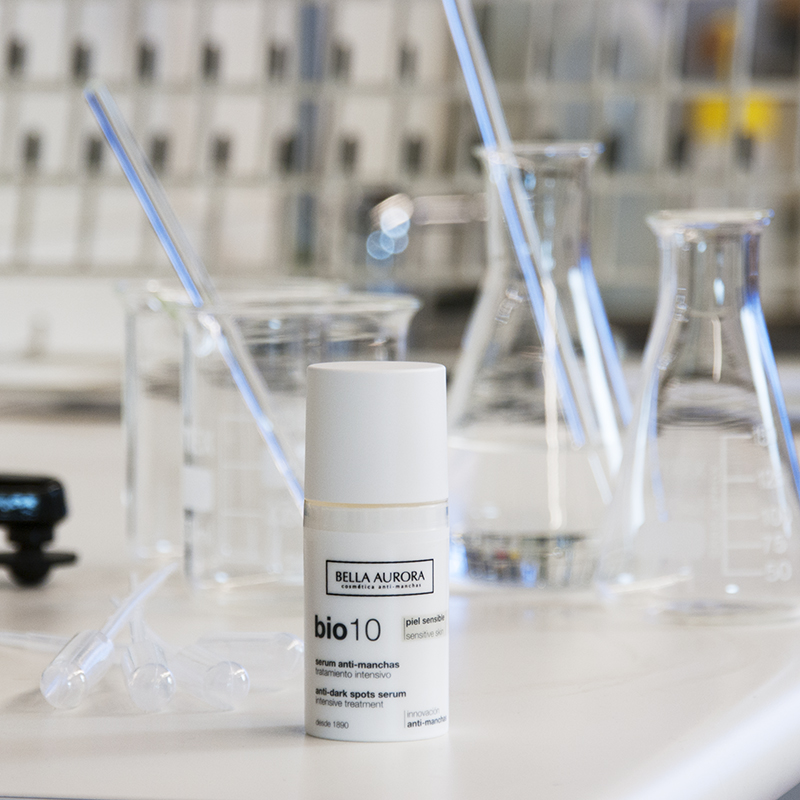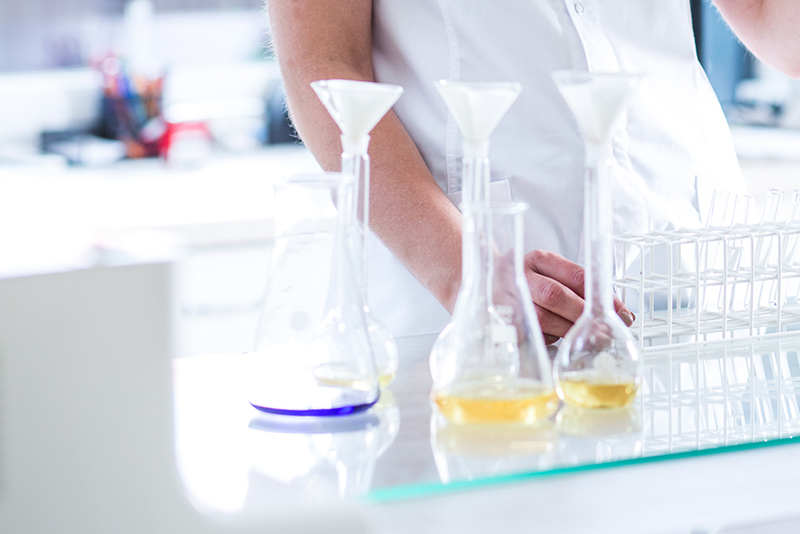Although we are reminded time and again, we only think about the dark marks that develop on our skin in summertime. “Dark marks should be prevented all year, but we only remember them in summertime”, agrees Sergi Hernández, Fundamental Research Manager at Bella Aurora Labs.
Choosing a cream or treatment can be tricky. The many options available and technical words make it difficult to decide. Sergi Hernández would like us to learn a little more about a subject that worries two in three Spanish women. “There are numerous techniques and many depigmenting agents. That’s why it is important to choose your treatment carefully, because although techniques are becoming less aggressive, a treatment that does not suit your skin may make the problem worse”, says Sergi Hernández.
A quick flick through beauty magazines and a glance at pharmacy displays reveals growing concern about this issue and that the word “depigmentation” tends to be accompanied by the terms hydroquinone, AHA acids, retinoic acid, kojic acid and azelaic acid. Recently, the laboratories at Bella Aurora conducted a study to show the necrotic effect on the skin of AHA acids and hydroquinone, and compared these effects with Bella Aurora’s two depigmenting treatments: bio10 shock treatment for sensitive skin and the localised treatment, L+ for sensitive skin.
“This study shows how some products affect skin viability, in other words, cells vitality. The results are clear: the greater the skin viability, the kinder the product is to the skin”, explains Sergi Hernández.

After four days of treatment, depigmentation treatments containing hydroquinone or AHA acids at a concentration of 15% were seen to bleach the skin, damage the cells and leaving them unacceptably unprotected protection. However, Bella Aurora treatments, in this case, L+ and bio10 shock treatment for sensitive skins, were tested and shown not to damage the skin, equalling or increasing the “vitality” of untreated skin. “We have seen that Bella Aurora depigmenting treatments do not harm the skin and provide it with far more care than expected”, concluded the specialist.

When asked what makes Bella Aurora depigmenting treatments different from the rest, Sergi Hernández explained that these formulas do not eliminate melanocytes in the same way as hydroquinone. We need melanocytes to produce melanin, which protects skin from the sun. Without it, we are left totally unprotected. Another aim when formulating the product was to keep outermost layers of skin intact, so they can do their job as a protective barrier. Bella Aurora boosts the signal that tells melanocytes to synthesise less melanin, soothing the skin and improving communication between cells so that they produce less melanin. These treatments also slow excess melanocyte production, inhibiting melanin synthesis, so that we do not have more melanin than necessary

